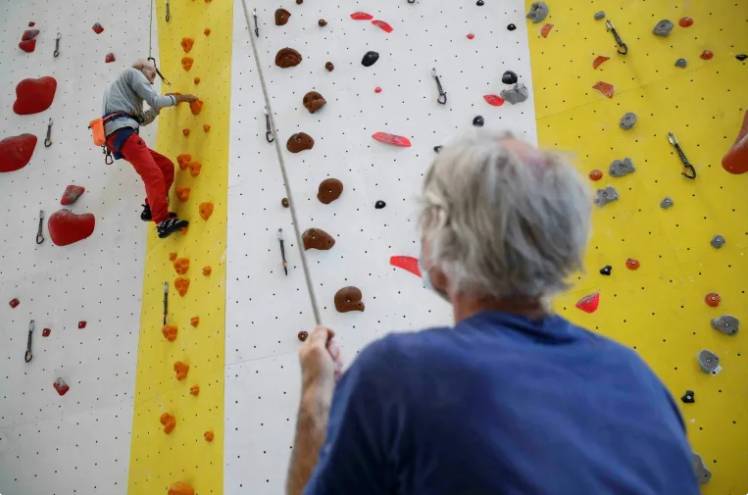Teenage migrants overcome trauma up Paris climbing wall

Stay tuned with 24 News HD Android App

Marek, a 17-year-old unaccompanied migrant from Armenia, clasps nervously at the holds at a Paris climbing wall, then overcomes his fear and makes it to the top victorious.
"When you climb, you have to go straight ahead and not think too much," he said, still trembling after rappelling back down onto the mat.
The slender teenager grinned as he undid the rope attached to his harness, remembering that only a month ago he had been petrified of falling off the six-metre-high wall.
"I'm proud of myself," he said at the Paris-based Primo Levi Centre for survivors of torture or political violence in exile.
Marek was this weekend one of six migrants aged 17 to 22 -- all having suffered torture or violence at home or during their trip to France -- to climb as part of a project to help them regain trust in the world.
In indoor rock climbing, two sides of the rope hang down from an anchor at the top of the climbing wall.
The climber attaches the end of the one side of the rope to his harness, while their partner attaches the other side of the rope to theirs.
In a process called belaying, the partner on the ground takes up or lets out slack in the rope so that the climber can move freely, but in case of a fall will only drops a short distance before coming to a stop, hanging at the end of the rope.
Thomas, a climbing instructor who asked that his surname not be used, said he was surprised by how fast his students had picked up the sport -- even if it was tough in the beginning.
"They found it extremely hard to trust the partner in charge of their security," said the coach, who now encourages them to pair up with someone different at each session.
Nearby, 18-year-old Mariama, from Guinea, asked her partner to double check the figure-eight knot she had tied on her carabiner.
'Feels like flying'
Psychologist Lucia Bley said it was all part of the exercise.
"Trusting that someone will not abuse or take advantage of them requires huge strength," she said.
"Climbing helps guide them back into the world of the living," she added. It allows them to "find balance".
Abellah, a 17-year-old from Cameroun, had travelled from his shelter for an hour and a half on public transport to join in.
He said his mother had died on their journey to Europe through Libya, and he came to climb "to forget" his problems and to stop what he described as the constant whirring in his head.
"The hardest part is the loneliness," said the teenager, who is training to be an electrician so he can start working when he becomes an adult next year.
Kadija, a 22-year-old from Guinea, stood at the bottom of the wall, belaying Marek, the Armenian.
"Breathe, breathe," she shouted up encouragingly when he tensed up.
She said she too was slowly learning to overcome past trauma.
Sometimes when climbing, "something from the past hits me, but then I have to immediately refocus to be able to grab the next hold," she said.
"When I get to the top, it feels like flying. My whole body is lighter."
